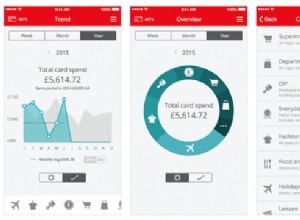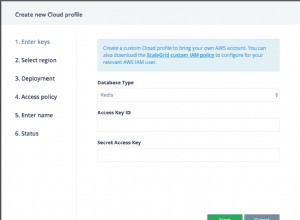Vous devriez toujours utiliser async mais vous avez besoin de async.waterfall pour ça. Voici ce dont vous devez tenir compte :
Une méthode principale pour appeler votre async fonction :
var getInformation = function(){
async.waterfall([
//Array of your functions in order, we will be back here later
], function (err) {
if(err){
console.log(err);
}else{
console.log('Everything OK!');
}
);
}
Ensuite, vous avez besoin que vos fonctions soient async convivial, cela signifie que vous devez utiliser des rappels et donner vos données d'une fonction à une autre. Quelque chose comme ça :
function findUser(callback){
//Do something
if('Everything OK'){
callback(err, yourData); //err should be null if everything is OK and yourData should be the data that you wanna use in your next function. e.g. schoolId
}else{
callback(err); //Something was wrong, "err" should have something different to null
}
}
function findSchool(callback, schoolId){ //Note that we receive the parameter schoolId here but not in the first function
//Do something
if('Everything OK'){
callback(err, yourData); //err should be null if everything is OK and yourData should be the data that you wanna use in your next function. e.g. schoolName
}else{
callback(err); //Something was wrong, "err" should have something different to null
}
}
function findStudents(callback, schoolName){
//Do something
if('Everything OK'){
callback(err); //err should be null if everything is OK if this is the last function maybe we don't need to send back more data from here
}else{
callback(err); //Something was wrong, "err" should have something different to null
}
}
Ensuite, vous devez appeler vos fonctions dans votre méthode principale :
var getInformation = function(){
async.waterfall([
findUser,
findSchool,
findStudents
//Note that there is no need to tell the functions the parameters they are sending or receiving here
], function (err) {
if(err){
console.log(err);
}else{
console.log('Everything OK!');
}
);
}
Et voilà, vous avez 3 fonctions qui doivent être exécutées les unes après les autres et aucun enfer de rappel n'est nécessaire.




